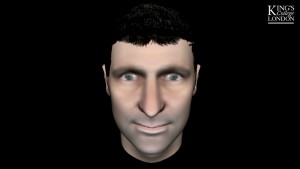One of the most interesting applications of AI in healthcare is in the treatment of mental illness. Let me share a novel therapy. It’s called AVATAR therapy in schizophrenia.
What is an AVATAR?
An AVATAR is a personalized graphical illusion that represents a computer user or another character. Much like in video games or even in your smart phones. It’s a term borrowed from Hindi that means “another form of you”.
70% of patients with schizophrenia suffer from auditory hallucinations, much like Sushant Rajput. They hear voices telling them to do mostly bad things, like harm other people or themselves. These voices from an “imaginary entity” often take control of the patient’s day to day routine, like watching TV, using a phone, eating, sleeping, etc. These interactions are mostly very unpleasant and the cause of extreme morbidity.
Medications effectively reduce these hallucinations. However, 1 in 4 (25%) continue to experience them despite control of psychotic symptoms. Also. often patients discontinue medications as they start to feel better, a very harmful step. The hallucinations can return with a vengeance. Thus novel treatments are necessary.
AVATAR stands for Audio Visual Assisted Therapy for Refractory Auditory Hallucinations.
An AVATAR or digital representation of the “imaginary entity” is created on the computer for the patient. Using AI, this therapy uses the tone and pitch of the auditory hallucinations to allow a face to face interaction between the patient and the AVATAR via intelligent algorithms.
The patient is able to talk to the AVATAR face to face in front of a computer. Ask questions, seek answers from this imaginary entity that controls their life. The patient is able to gain control over their relationship with this imaginary entity and turn it into a positive interaction.
A randomized controlled clinical trial from King’s College in London showed that this therapy was much more effective in reducing auditory hallucinations than counseling.
Please keep talking about mental illness. Only an open conversation will destigmatize it.



Recent Comments